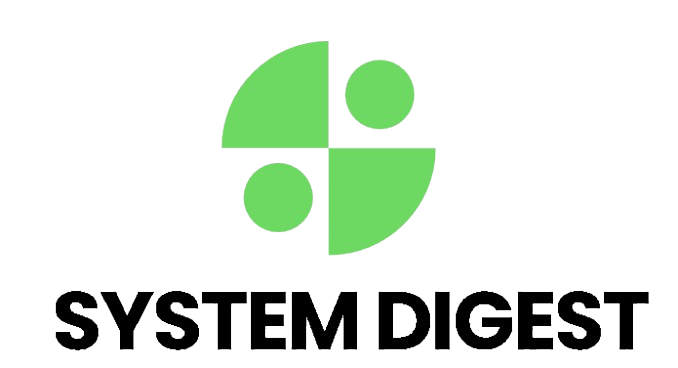
I’ve been watching the rise of Artificial Intelligence (AI) for years, but lately, I’ve noticed something different—it’s no longer just a “tech trend.” It’s changing how we work, the skills we need, and the jobs we can get. I decided to write this post because friends, clients, and even strangers keep asking me the same thing: “Will AI take my job?” I’ve had my own experiences seeing roles transform—some disappearing, others evolving. This isn’t just a tech topic for me; it’s personal. My goal here is to share a clear, honest view of what AI is actually doing to job markets, based on facts, examples, and my own insights.
1. How Artificial Intelligence Is Reshaping Job Roles
When I first started using AI tools, I thought they were just “helpers” to speed things up. But it turns out, AI is not only automating repetitive tasks—it’s also creating new types of work that didn’t exist before.
From my perspective, the biggest change is in how job descriptions are evolving. I’ve seen roles like “Data Entry Clerk” shrink, while positions like “AI Prompt Engineer” and “Machine Learning Analyst” grow.
Here’s how I break it down:
-
Automating repetitive work – AI can now process invoices, scan medical images, or even generate legal drafts faster than humans.
-
Augmenting skilled work – Designers, marketers, and engineers use AI for brainstorming, testing, and problem-solving.
-
Creating entirely new roles – Jobs focused on AI model training, data ethics, and algorithm auditing have emerged.
Pro tip: If your current role has tasks that are highly predictable and repetitive, start learning skills that complement AI, not compete with it.
2. The AI Job Threat
I’m not going to sugarcoat it—AI will replace some jobs. But from my research and personal observation, it’s usually not an overnight disappearance. Instead, the work shifts gradually.
The Oxford University study on automation risk (available here) estimates that around 47% of US jobs are at high risk of being automated. But “risk” doesn’t mean “gone tomorrow.”
Here’s a quick table I made based on data from multiple sources, including the World Economic Forum and OECD:
| Job Type | AI Risk Level | Reason for Risk |
|---|---|---|
| Data Entry Clerks | Very High | Fully automatable tasks |
| Telemarketers | Very High | AI voice and chatbots outperform |
| Paralegals | Medium | Document review automated |
| Graphic Designers | Medium | AI tools create templates but lack human creativity |
| AI Specialists | Low | Role exists because of AI |
| Healthcare Providers | Low | Requires empathy, decision-making |
Quick tip: The safest jobs are often those involving complex human interaction, creativity, or unpredictable problem-solving.
3. AI as a Job Creator
When people talk about AI and jobs, they usually focus on the losses. But I’ve personally seen the opposite too—AI creating demand for new roles.
Here are some examples I’ve encountered:
-
AI Model Trainers – People labeling data so AI learns correctly.
-
AI Product Managers – Professionals who understand both AI capabilities and user needs.
-
Ethics & Compliance Officers for AI – Ensuring AI meets legal and moral standards.
-
AI-powered Marketing Specialists – Using AI to test and optimize campaigns.
The World Economic Forum predicts 97 million new roles will emerge by 2025 due to AI and automation. You don’t see that number in headlines much, but it’s there.
Guide: Don’t just ask “Will AI take my job?” Ask “How can I be part of the AI economy?”
4. How to Adapt Your Career for the AI Era
I’ve been adapting my own work to fit alongside AI instead of competing against it. The trick is to build “AI-proof” skills—things AI struggles to do well.
Here’s my personal strategy:
-
Master soft skills – Communication, leadership, empathy.
-
Develop technical literacy – You don’t need to be a coder, but understanding how AI works will keep you ahead.
-
Combine creativity with data – AI can’t fully replicate unique human perspectives.
-
Stay flexible – I’ve changed my work tools three times in the last year alone because AI keeps evolving.
For example, in marketing, I use AI to generate ideas but rely on my own expertise to judge which ideas work in the real world. AI can give you 100 ideas in seconds—but choosing the right one is still a human skill.
Note: Learning to “work with AI” is the same as learning to use the internet 20 years ago—those who adapted early won.
5. The Global Impact
One thing I’ve noticed is that AI’s impact on job markets isn’t equal across countries. In developed economies, it’s often about job transformation—roles change but don’t vanish. In developing countries, where many jobs are labor-intensive and repetitive, the risk of outright job loss is higher.
The International Labour Organization (ILO) highlights that countries with high informal employment are more vulnerable to sudden changes from AI automation.
From my travels and conversations, I’ve seen how:
-
In the US, customer service is shifting to AI chatbots, but human agents are still needed for complex issues.
-
In parts of Asia, factory automation is reducing the need for assembly-line workers rapidly.
-
In Europe, laws and regulations slow down automation, giving workers more time to adapt.
Pro tip: If you’re in a country with slower AI adoption, you have a time advantage—use it to upskill now.
6. My Final Thoughts
I know some people see Artificial Intelligence as a threat. Personally, I see it as a reality we can’t avoid—but also as an opportunity. Yes, some jobs will vanish. Yes, we’ll need to retrain. But the same thing happened with electricity, the internet, and smartphones.
The job market isn’t dying—it’s evolving. And from my experience, the people who do well are the ones who stay curious, flexible, and willing to learn new skills.
If you take one thing from this post, let it be this:
Don’t compete with AI on what it does best. Use it to make yourself better at what only humans can do.
FAQs
1. How Is Artificial Intelligence Reshaping Job Roles?
Artificial Intelligence is no longer just a background tool—it’s actively changing job descriptions. Instead of only automating repetitive work like data entry or invoice processing, AI is also assisting skilled professionals and even creating entirely new roles.
-
Automation: Data clerks, paralegals, and telemarketers face shrinking demand as AI performs faster and more efficiently.
-
Augmentation: Marketers, designers, and engineers are using AI as a partner to brainstorm, test, and analyze.
-
Creation: Entirely new positions are emerging, such as AI prompt engineers, model trainers, and ethics officers.
If your current work is predictable and repetitive, it’s wise to start building skills that complement AI instead of competing with it.
2. Who’s Most at Risk of AI Job Disruption?
Not all jobs face the same level of threat. The Oxford University study on automation risk suggests nearly half of U.S. jobs could be automated—but risk doesn’t mean jobs disappear overnight. Instead, tasks gradually shift.
High Risk: Data entry clerks, telemarketers (tasks are fully automatable).
Medium Risk: Paralegals, graphic designers (AI handles part of the workload).
Low Risk: Healthcare providers, AI specialists (require human creativity, empathy, or exist because of AI).
The safest jobs are those rooted in creativity, complex decision-making, and human interaction.
3. Can AI Actually Create Jobs?
Yes—and it’s one of the most overlooked facts about AI. While some jobs vanish, new opportunities are emerging rapidly:
-
AI product managers who bridge tech and user needs
-
Data labelers and trainers for AI learning
-
Ethics and compliance officers for responsible AI
-
AI-driven marketing specialists
The World Economic Forum predicts 97 million new roles by 2025 due to AI. The key isn’t to fear AI—it’s to ask: How can I participate in this new economy?
4. How Can I Adapt My Career for the AI Era?
The best strategy isn’t avoiding AI but learning to work alongside it. Here’s a roadmap:
-
Strengthen soft skills like leadership, empathy, and communication.
-
Build AI literacy—you don’t have to code but understanding how AI works gives you an edge.
-
Blend creativity with data, combining human originality with AI-driven insights.
-
Stay flexible, because AI tools evolve quickly.
Think of it like the internet 20 years ago—those who embraced it early gained an advantage that still pays off today.
